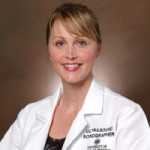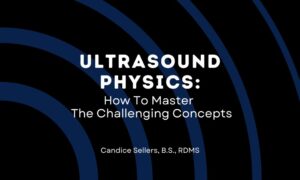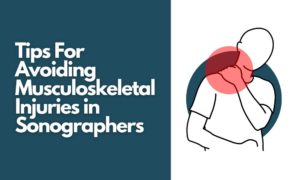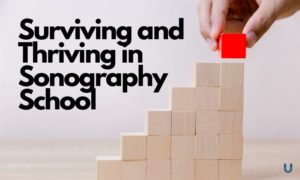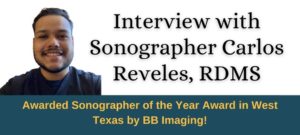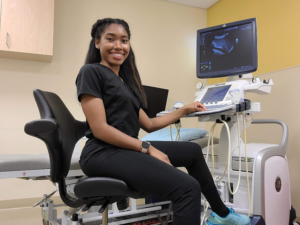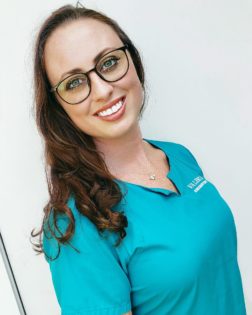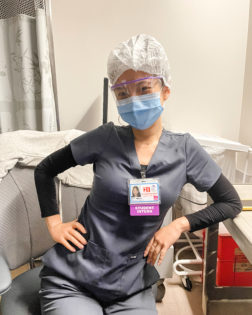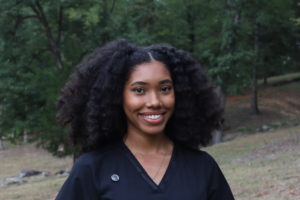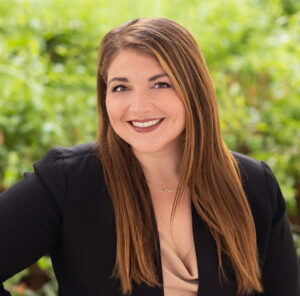Emily Downs is an experienced Diagnostic Medical Sonographer with a BS in Radiation Science. She is currently the Program Director of the Diagnostic Medical Sonography Program of Denver in Colorado, where she has served for the past three years. In 2014, she received the IFSER (International Foundation For Sonography Education and Research) International Outreach Advocate Award.
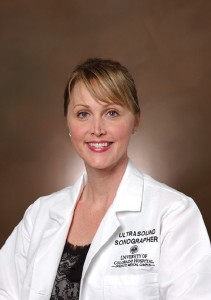
Emily M. Downs BS RDMS RVT RDCS RT
Emily shares with us what inspires her, and she has some advice for the aspiring sonographer.
I graduated from the University of Nebraska Medical center with a BS in Radiation Science. This program allowed me to rotate through the different modalities of Radiology, which introduced me to the profession of sonography.
During an off-site radiography rotation in Estes Park I was able to observe practicing Sonographers. I quickly realized the high level of technical skill that was needed for this field and was drawn to the level of responsibility that is required. After graduating from my radiography program, I was fortunate to be accepted into the DMS Program of Denver.
My first job as a Sonographer was at a community hospital that exposed me to all types of exams. I found myself in an environment that allowed me to grow professionally through independent decision making.
Although I loved the aspects that a small hospital had to offer, I knew I wanted to further my career within an academic institution. This desire to advance my sonography skills and return to the institution that provided my initial training led me back to the University of Colorado Hospital.
I have been the Program Director of the Diagnostic Medical Sonography Program of Denver for three years and prior to that was a clinical instructor for four years.
The most rewarding part of being an educator is seeing the moments when students gain the confidence to take diagnostic images and make decisions that require critical thinking that ultimately affect a patient’s healthcare plan; seeing first-hand when students recognize how crucial it is to apply didactic information into the clinical setting.
Each image that you take as a sonographer should tell a story. You must be an artist, in a way, and understand that painting the wrong “picture” can have devastating outcomes for a patient.
The Diagnostic Medical Sonography Program of Denver stands out due to the unique hospital based structure that it offers. It is a one year accelerated program that provides students an advanced didactic curriculum and exposure to a high volume of ultrasound exams and a wide variety of complex pathologies.
Currently I work two days a week in the clinic with patients as well as overseeing students. Our facility provides both outpatient and inpatient ultrasounds.
Due to the highly specialized needs of the various clinics of our hospital we perform many types of ultrasound exams including abdominal, high risk OB, fetal echocardiograms, vascular, and transplant evaluations.
As part of my ultrasound program responsibilities I have one administrative day and one lecture day where I spend the majority of my time developing lectures, answering questions for potential applicants, and providing lectures for the students.
I have attended the IFSER Educators Summit for several years and became aware of IFSER’s growing international outreach efforts.
This amazing conference provides sonography educators with lectures and resources to improve curricula and develop teaching techniques. It is an amazing opportunity for educators to be a part of a cohesive, positive, environment and share ideas to better our programs!
I applied for the International Outreach Advocate Award on IFSER.org (under the international tab). Prior to applying, I knew that I wanted to become involved internationally but was overwhelmed finding an organization that would best benefit from my personal skill set.
Through the many collaborations that IFSER has with international organizations (such as PAHO/WHO), they are able to match individuals with organizations that are in need of a sonographer with a specific expertise!
I was able to provide a two day OB seminar that included multiple lectures in addition to hands on training.
Prior to my travel I provided an online Webinar hosted by PAHO/WHO which was attended by many Caribbean countries including Trinidad and Tobago! The Sonographers and Physicians of Trinidad and Tobago were so welcoming and enthusiastic about learning new information and scanning techniques.
Although they may not have had all of the resources commonly available in United States, their passion for ultrasound and desire to learn new information was very apparent.
I hope to continue to grow our program curriculum to include additional musculoskeletal and pediatric sonography lectures. Additionally, I hope to continue to help developing countries by providing lectures and hands-on education.
In looking for a sonography program, be sure you find one that best suits your needs. Be sure to research the different avenues of ultrasound and have a basic understanding of what this career will require of you. It is imperative to understand the level of responsibility required by a Sonographer.
Each image that you take as a Sonographer should tell a story. You must be an artist, in a way, and understand that painting the wrong “picture” can have devastating outcomes for a patient.

